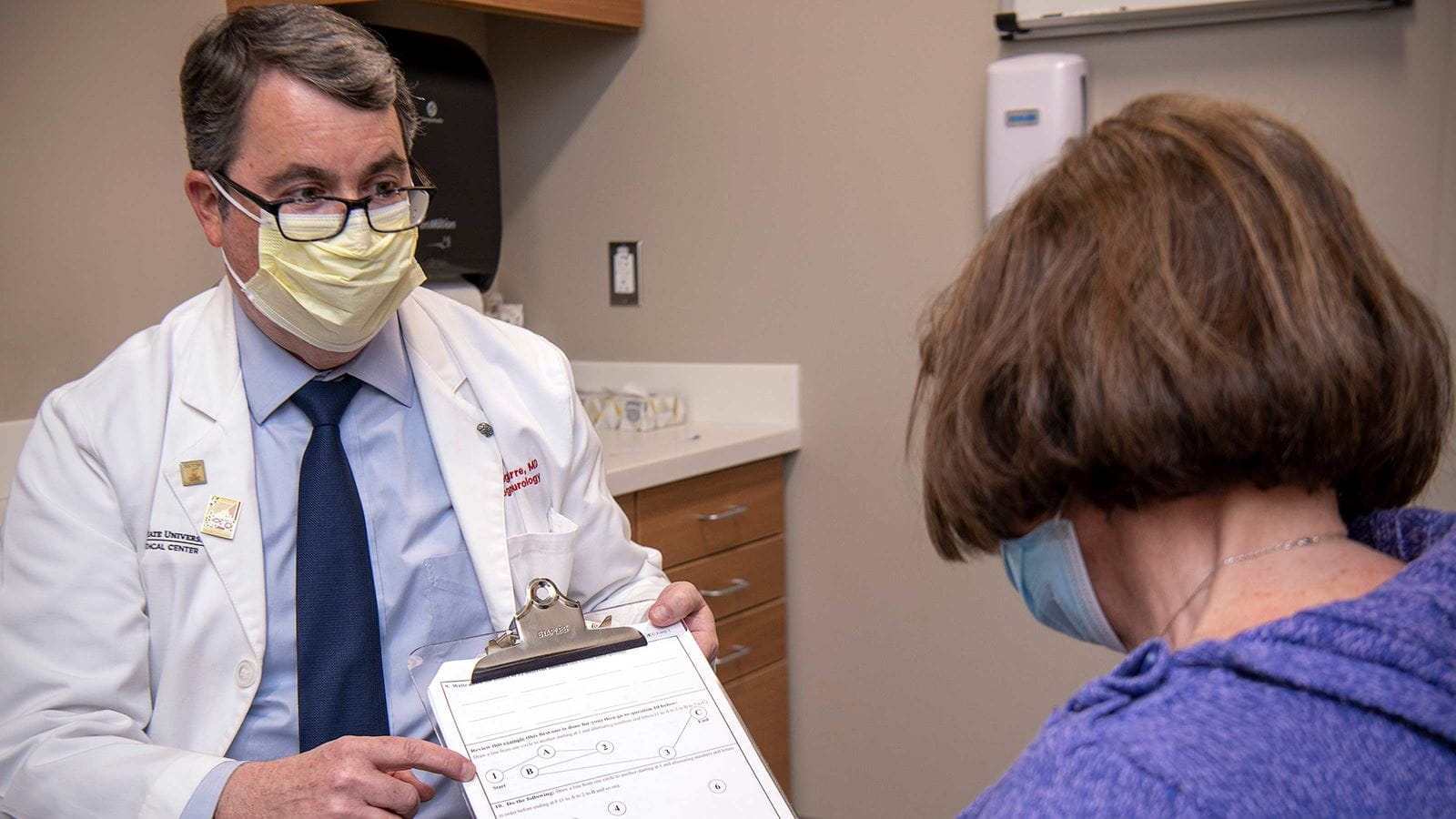With no cure for Alzheimer’s disease currently and more than 55 million people living with the disease and other dementia-related conditions worldwide, research work surrounding the disease is imperative.
The Ohio State University Wexner Medical Center has been at the forefront of studying Alzheimer’s disease for decades with an academic medical center, passionate physicians and researchers and ample resources dedicated to pursuing a cure.
The past 20 years, Ohio State’s Memory Disorders Research Center has completed roughly 200 clinical trials and is unparalleled in the region for studies aimed at helping Alzheimer’s disease, dementia and other cognitive issues.
At any given time, more than three dozen clinical trials are happening at the Ohio State Wexner Medical Center.
Not only does this work get us closer to finding a cure for Alzheimer’s disease, but it also allows our patients access to the latest diagnostic tools and treatments.
How does Ohio State study Alzheimer’s disease and dementia?
Clinical trials are typically sponsored by Ohio State, the National Institutes of Health, pharmaceutical companies or philanthropic efforts.
We’ve also participated in several studies since 2004 with the national Alzheimer’s Disease Cooperative Study Group. We collaborate with other academic centers to enroll patients for clinical trials, propelling us more rapidly toward better treatments.
Currently, research focused specifically on Alzheimer’s disease includes:
- Medication studies: We’re testing certain medicines to see if they slow progression in those with mild cognitive impairment or mild Alzheimer’s disease. We’re also looking at other medications targeted at relieving agitation and extreme restlessness in patients with Alzheimer’s disease.
- Diagnostic studies: Our investigators are looking for new biomarkers in spinal fluid and blood to predict who might have or develop Alzheimer’s.
- Therapeutic studies: Our clinical research neurologists are teaming with pharmaceutical companies to test the safety and effectiveness of the newest disease-modifying therapies available for Alzheimer’s disease.
- Preclinical trials: We’re now conducting a number of studies with people who are cognitively normal to see how certain activities or risk factors impact their cognitive health. We’re also looking at how medication could stop or delay the appearance of dementia symptoms in people who are at risk for them.
Diversity in clinical trials for Alzheimer's disease
Ohio State is committed to ensuring Alzheimer’s disease clinical trials reflect our population. We're not all the same physiologically, whether it's because of age, illness, or genetic ancestry, and we likely all metabolize drugs differently. Because of this, it's imperative that clinical trials include underrepresented groups. When study volunteers participate in research, society benefits, bringing new hope to patients afflicted with different diseases or conditions.
How do I enroll in an ongoing or upcoming Alzheimer’s or dementia clinical trial?
Individuals willing to participate in our clinical trials are vital in our study of dementia and Alzheimer’s disease.
For patients and families who want to contribute to the fight against dementia, please consider enrolling in a clinical trial.
You can do this by contacting Jenny Icenhour, clinical research manager, at 614-293-6882.
For more information on clinical trials happening at Ohio State Wexner Medical Center, you can visit our main research page.
What’s our Buckeye Brain Bank and Repository?
Through this joint effort within Ohio State’s Neurological Research Institute, people with dementia and Alzheimer’s disease, can donate their brains after death, if they wish, to be used for scientific research through the Neuroscience Research Institute Buckeye Brain Bank and Repository.
The repository also collects and stores blood and spinal fluid from consenting people with Alzheimer’s disease and other cognitive and neurological disorders for research purposes.
These fluids and brain tissues are invaluable in discovering new treatments for dementing conditions and other diseases of the brain. We also provide these samples to researchers across the country who might need them for their own studies.


